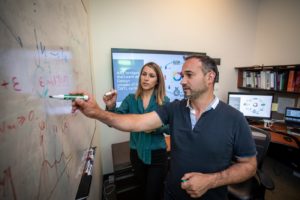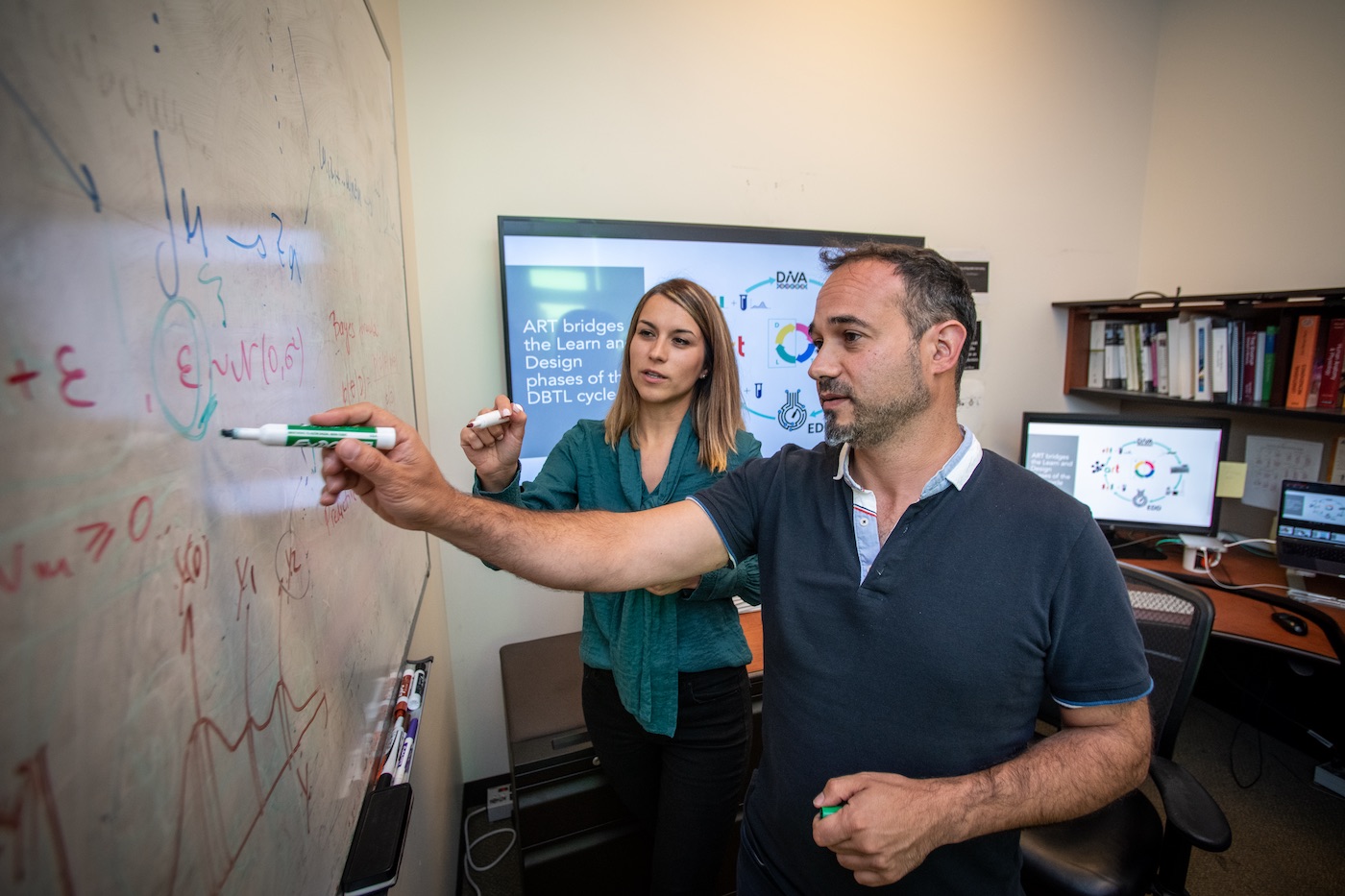
Tijana Radivojevic (left) and Hector Garcia Martin work on mechanical and statistical modeling, data visualizations and metabolic maps at the Agile BioFoundry.





